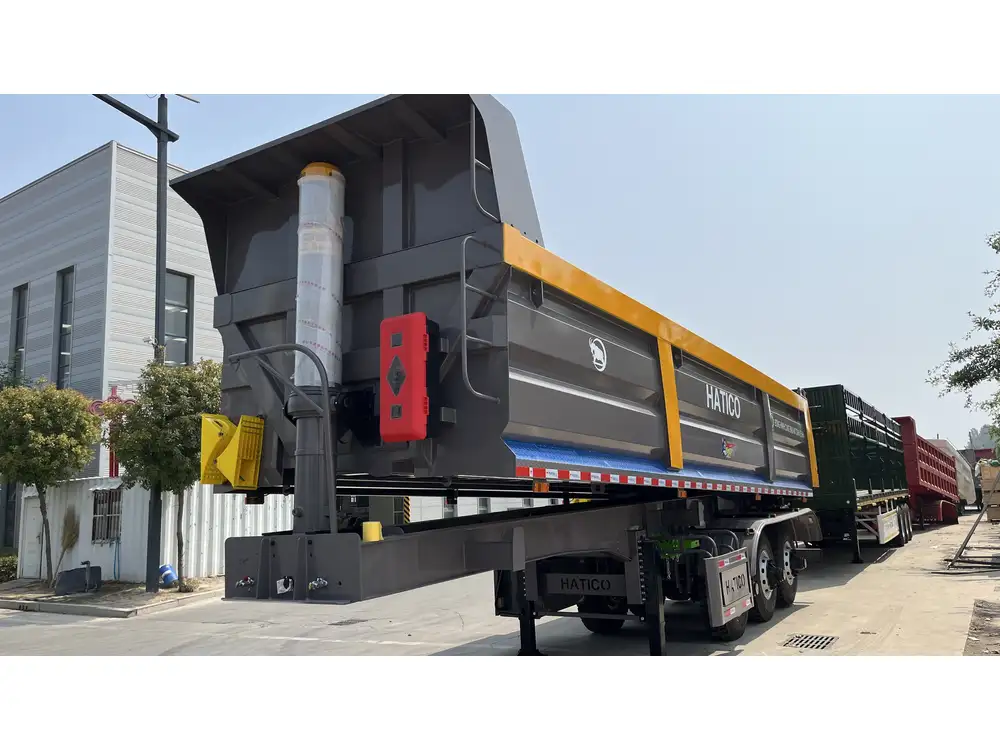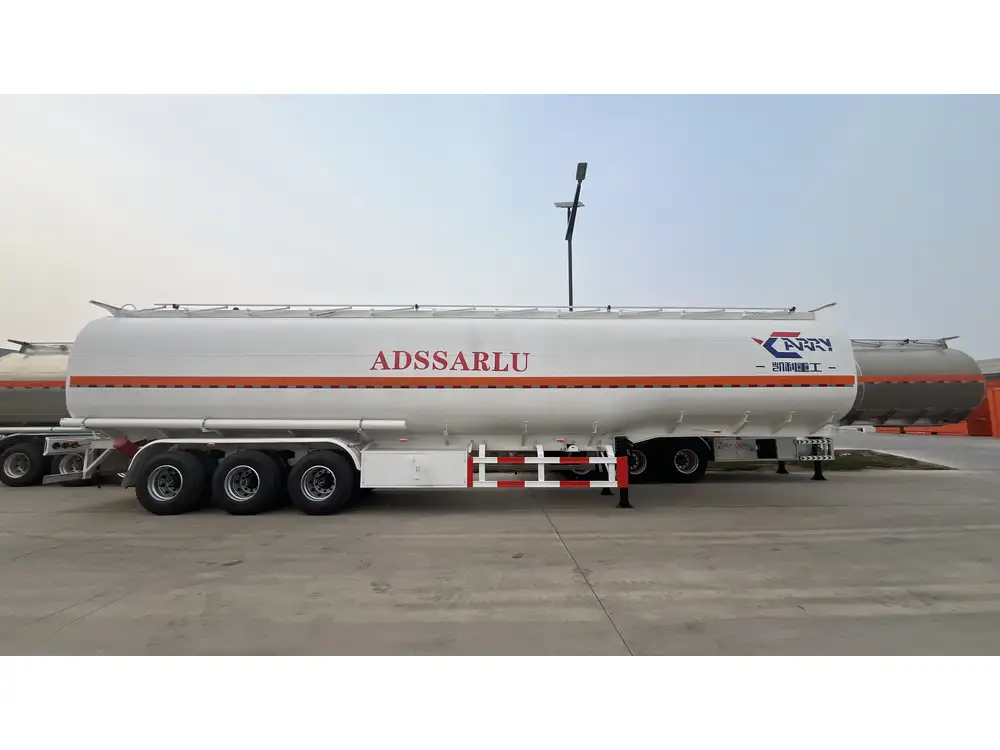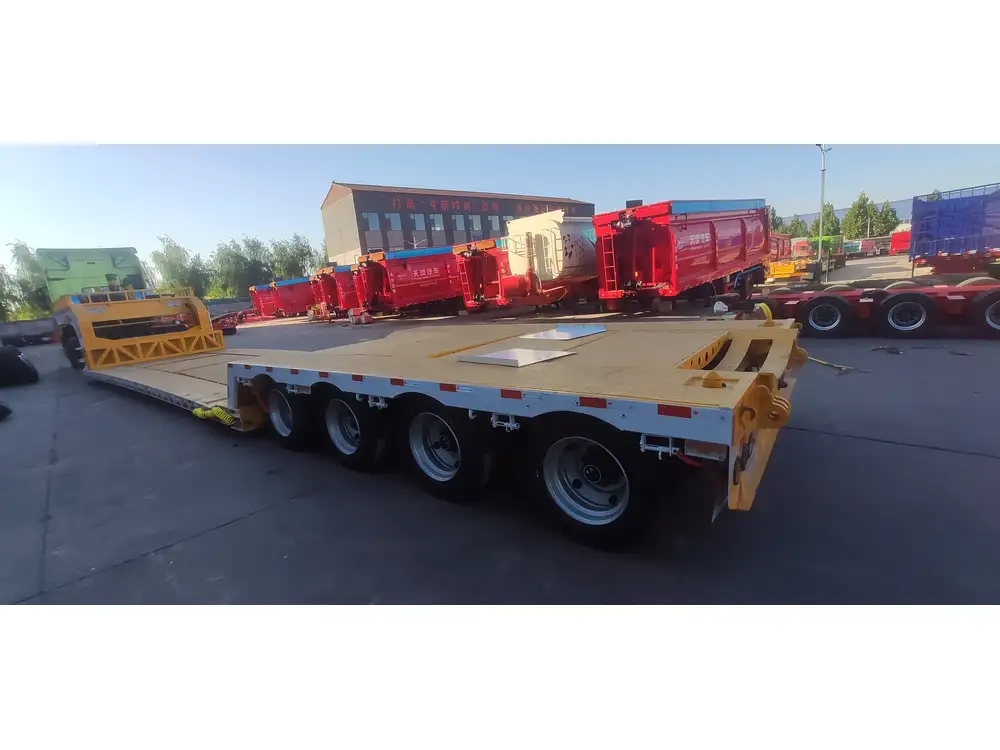Navigating the regulatory landscape surrounding dump trailers can often feel daunting, especially for operators seeking clarity on whether they need to register their trailers with the United States Department of Transportation (USDOT). In this article, we delve into critical factors influencing USDOT registration requirements, providing insights and guidance to clear up any confusion.
Understanding USDOT Registration
What is USDOT Registration?
The USDOT number is a unique identifier assigned to commercial motor vehicles (CMVs) operating in interstate commerce. Registration with USDOT allows for the collection of statistics regarding commercial vehicles and compliance with federal safety regulations. This number must be displayed on the vehicle and is essential for tracking services and enforcing federal safety requirements.

Who Needs a USDOT Number?
Generally, any business that transports goods or passengers for compensation and meets certain criteria might need a USDOT number. Specifically, if you operate in interstate commerce and your vehicle has a gross vehicle weight rating (GVWR) of 10,001 pounds or more, registration becomes necessary. Additionally, vehicles that transport hazardous materials requiring placarding must also obtain a USDOT number.
Key Considerations
Interstate vs. Intrastate Commerce: If you operate solely within a state’s borders (intrastate), you might not require a USDOT number. However, regulations can vary by state. It is crucial to check specific state requirements, as they might impose their own registration mandates.
Vehicle Type and Use: The type of vehicle and its specific use-case scenarios also impact whether registration is necessary. For example, a dump trailer primarily used for off-season agricultural work may fall outside certain regulations compared to those used for commercial construction.
Determining the Need for Registration

Classification of Your Dump Trailer
To ascertain whether your dump trailer needs a USDOT number, consider the following classifications:
| Category | Criteria | USDOT Registration Required? |
|---|---|---|
| GVWR | 10,001 pounds or greater | Yes |
| Transporting Hazardous Materials | Any quantity requiring placarding | Yes |
| Interstate Transportation | Any activity crossing state lines | Yes |
| Intrastate Use | Weighing less than 10,001 pounds or not transporting for hire | Generally No (check state laws) |
| Private Use (Non-Commercial) | Used solely for personal purposes without compensation | No |
Evaluating the Weight of Your Trailer
The weight of your dump trailer plays a vital role in determining whether it falls under the regulatory umbrella of USDOT registration. Ensure you have up-to-date and accurate GVWR information for your dump trailer. This is often found on the manufacturer’s label affixed to the trailer itself.
Type of Cargo Hauled
When considering USDOT registration for your dump trailer, the nature of the cargo being transported is crucial. Do you frequently transport construction materials? Are you involved in heavy hauling? If your operations feature the transportation of hazardous materials, such as chemicals, the need for registration becomes critical.

Steps for USDOT Registration
If you determine that your dump trailer indeed requires USDOT registration, follow these important steps:
Gather Required Information:
- Name and address of the business
- Type of operations (interstate or intrastate)
- Vehicle details including number of axles and weight
Complete the Application:
- Fill out the MCS-150 form available on the Federal Motor Carrier Safety Administration (FMCSA) website. This form includes information about your household, operations, and vehicles.
Submission and Fees:
- Submit the MCS-150 form online or via mail. There is no fee for obtaining a USDOT number, but be prepared for possible fees associated with other compliance requirements.
Display the USDOT Number:
- Once issued, the USDOT number must be displayed on both sides of the dump trailer in a contrasting color that is easily visible.
Consequences of Non-Compliance
Penalties for Not Registering
Failure to register your dump trailer with USDOT—when required—can lead to several serious consequences, including:
Fines and Penalties: Non-compliance can result in hefty financial penalties, adding up quickly as operations continue without proper registration.
Vehicle Impoundment: Local authorities may impound vehicles found non-compliant, leading to operational interruptions and potential losses.
Increased Liability: Operating without valid credentials may expose you to enhanced liability in the case of incidents or road mishaps. It could complicate insurance claims and lead to increased premiums.

Maintaining USDOT Compliance
Regular Updates and Filings
Once registered, it’s critical to keep your information current. Any changes in your business operations, such as new vehicle additions or alterations in the type of goods transported, necessitate updates to your USDOT registration. Additionally, the FMCSA requires periodic renewal of your registration information through the biennial update process.
Safety Inspections and Audits
Operators of vehicles requiring a USDOT number must adhere to strict safety compliance standards. This entails regular inspections and maintenance of the dump trailer, ensuring all safety equipment is functional and that adherence to state and federal weight limits is maintained. Periodic audits may also be conducted by the FMCSA to ensure compliance with safety regulations.

Frequently Asked Questions (FAQs)
1. Can a personal dump trailer be exempt from USDOT registration?
If your dump trailer is strictly personal—meaning it is not used for commercial purposes or does not meet the weight threshold—registration may not be necessary. Always verify your state laws for clarity.
2. Are there state-specific registration requirements?
Yes, every state has different registration requirements. For instance, some states may require registration for dump trailers weighing as low as 5,000 pounds or have specific permits for load types.

3. What if my dump trailer is only used seasonally?
Even if your trailer is used seasonally, you may still need a USDOT number if its use meets the registration criteria. Ensure to determine how often and for what purpose it is used.
4. How often do I need to renew my USDOT number?
While the USDOT number itself does not need renewal, your registration details do require updating at least every two years or whenever significant changes occur.
In Conclusion
Deciding whether to register your dump trailer with USDOT hinges on various factors, including the trailer’s weight, the nature of use (commercial vs. personal), and the type of cargo it carries. By understanding and adhering to required regulations, you can operate with peace of mind, mitigate legal risks, and uphold safety standards in your operations. For any business engaged in the transport industry, acquiring a USDOT number is a crucial step toward compliance and professional responsibility. Be sure to stay informed about both federal and state requirements to ensure your dump trailer operations are legally sound and efficient.



